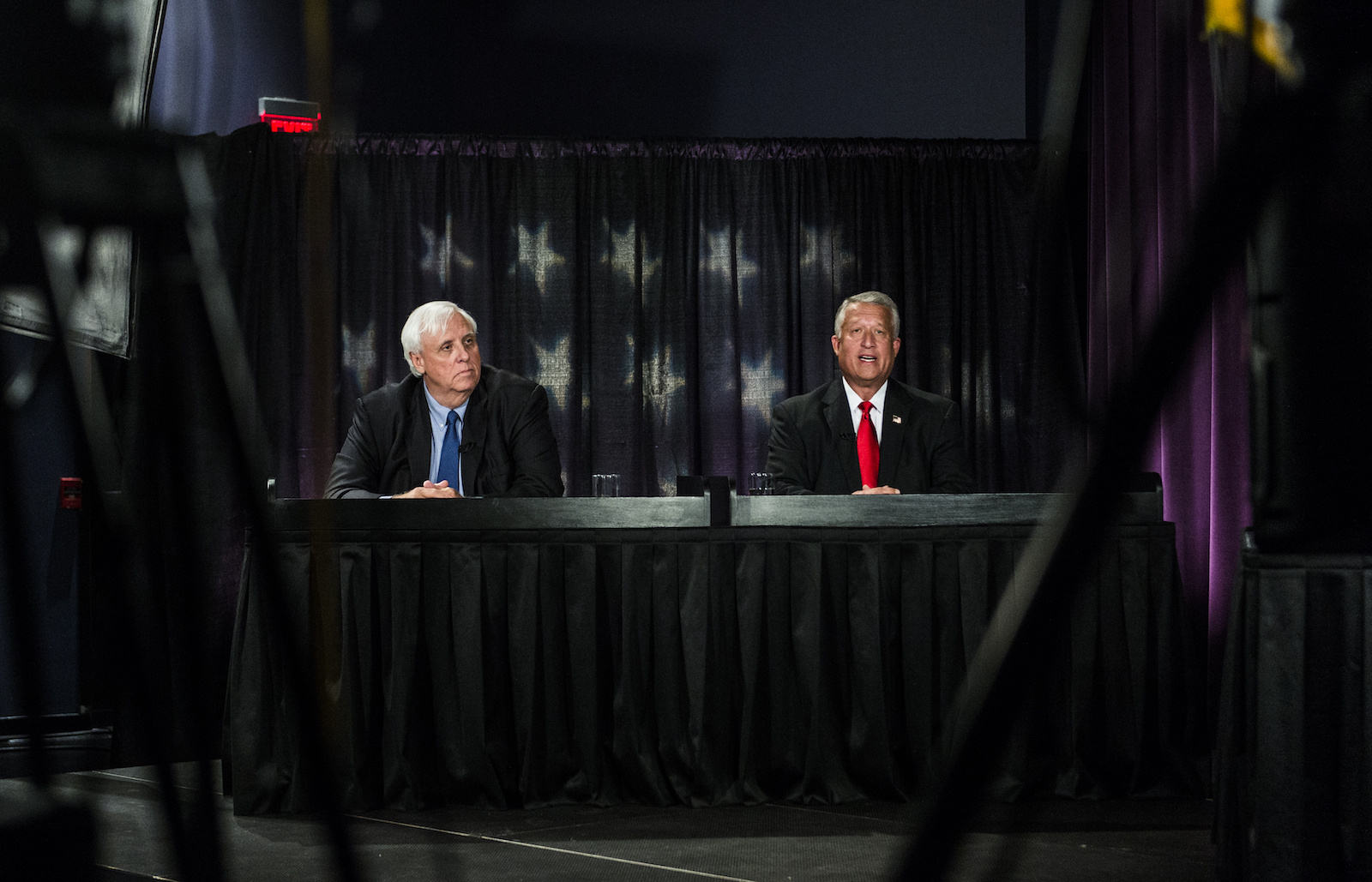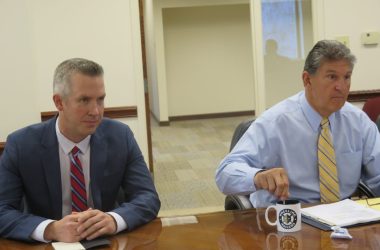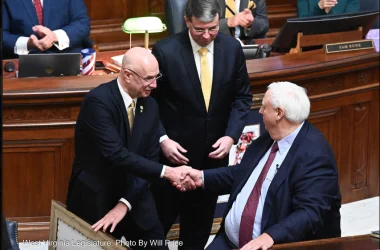

By LACIE PIERSON
The Herald-Dispatch
[email protected]
CHARLESTON, W.Va. — Two men vying to be the 36th governor of West Virginia traded cutting remarks and appealed to Mountain State citizens during the first of two gubernatorial debates Tuesday night.
The first debate put Democrat Jim Justice against Republican Bill Cole at the Clay Center for the Arts and Sciences in Charleston, where the two businessmen sparred about how to improve the state’s economy and fended off criticisms about their professional records.
The debate was hosted by the West Virginia Press Association and AARP West Virginia.
Both candidates largely stayed on point with themes of their campaign, with Cole promoting the legal and regulatory reforms in the legislature and promoting the idea that West Virginia government should get out of the way of businesses looking to open in the Mountain State, and Justice promoting his ideas about agriculture and tourism and the need to “think bigger” in West Virginia to turn the tides of fortune in the state.
What was different from the typical campaign trail points were the face-to-face confrontations and defenses to those assertions between the candidates.
It only took as far as their opening statements for Cole and Justice to turn their sights on one another.
Cole capitalized on one of Justice’s slogans, “Jobs. Jobs Jobs.”
“He doesn’t have a solution or a plan, plan plan,” Cole said. “The only plan I’ve heard so far is, ‘Trust me. I’m Jim Justice.’”
In his opening statement, Justice said Cole only would attack Justice because he trailed Justice in the polls, and he blamed the state’s budget crisis on Cole’s leadership as president of the West Virginia Senate.
“You’re going to hear a lot of desperation and everything from my opponent because he’s so far behind,” Justice said. “He’s going to throw rocks and everything under the sun.”
Each candidate left the debate saying he felt he’d done well, and responded more specifically to the assertions leveled against them.
“I think (his attacks) show a little bit of his ignorance of what the process is when he blames the budget crisis on me,” Cole said after the debate. “It’s the governor, it’s the executive that sets those revenue estimates. … He wants to paint me as a career politician, but that’s utter nonsense.”
Justice said he did “all right” considering he wasn’t a “professional politician.”
“I’m not laying everything on Cole’s lap,” Justice said after the debate. “What I’m saying is I’m an impatient guy. I mean, for crying out loud, we’re hurting. Our state is hemorrhaging. It’s been two years (since Cole became Senate president). Why in the world are we now saying we’ve got a drug epidemic and we’ve got to create jobs?”
During the debate, moderator Ashton Marra, assistant news director for West Virginia Public Broadcasting, pressed Cole and Justice on specific plans to improve the state’s economy, education system and infrastructure, but both candidates largely provided general overviews of how to bolster those societal structures, giving light details as to how they would achieve success.
Cole’s plans include his campaign points of eliminating government services that seem redundant and having government be more active in creating public-private partnerships.
To those ends, when Cole talked about improving the state’s infrastructure, he said he wanted to look more closely into perceived waste in the state’s highways department before pursuing major road projects, and, as governor, he said he wanted to “lock in a room” utility company representatives, particularly telecommunications companies, to establish a plan to string a broadband internet system using utility poles that already are in use for phone and electrical lines.
“This is an investment in the future,” Cole said. “This is an investment West Virginia needs to make, and I’ll lead the charge on that, but not until we make sure that our dollars — we are getting a true return on that investment.”
Justice talked about using West Virginia’s existing resources, largely tourism and agriculture, and making more investments into marketing the state for tourism and using the state’s agricultural landscape, particularly its forests, to log and process timber to manufacture furniture within the state with the support of federal subsidies.
“If you don’t believe agriculture is a sleeping giant in this state, you’re crazy,” Justice said. “The market is right at our fingertips. And tourism … We need to be able to think big. We need the next Dollywood or the next Disney … to really bring jobs.”
The next debate will be Tuesday, Oct. 11, at the Clay Center.





